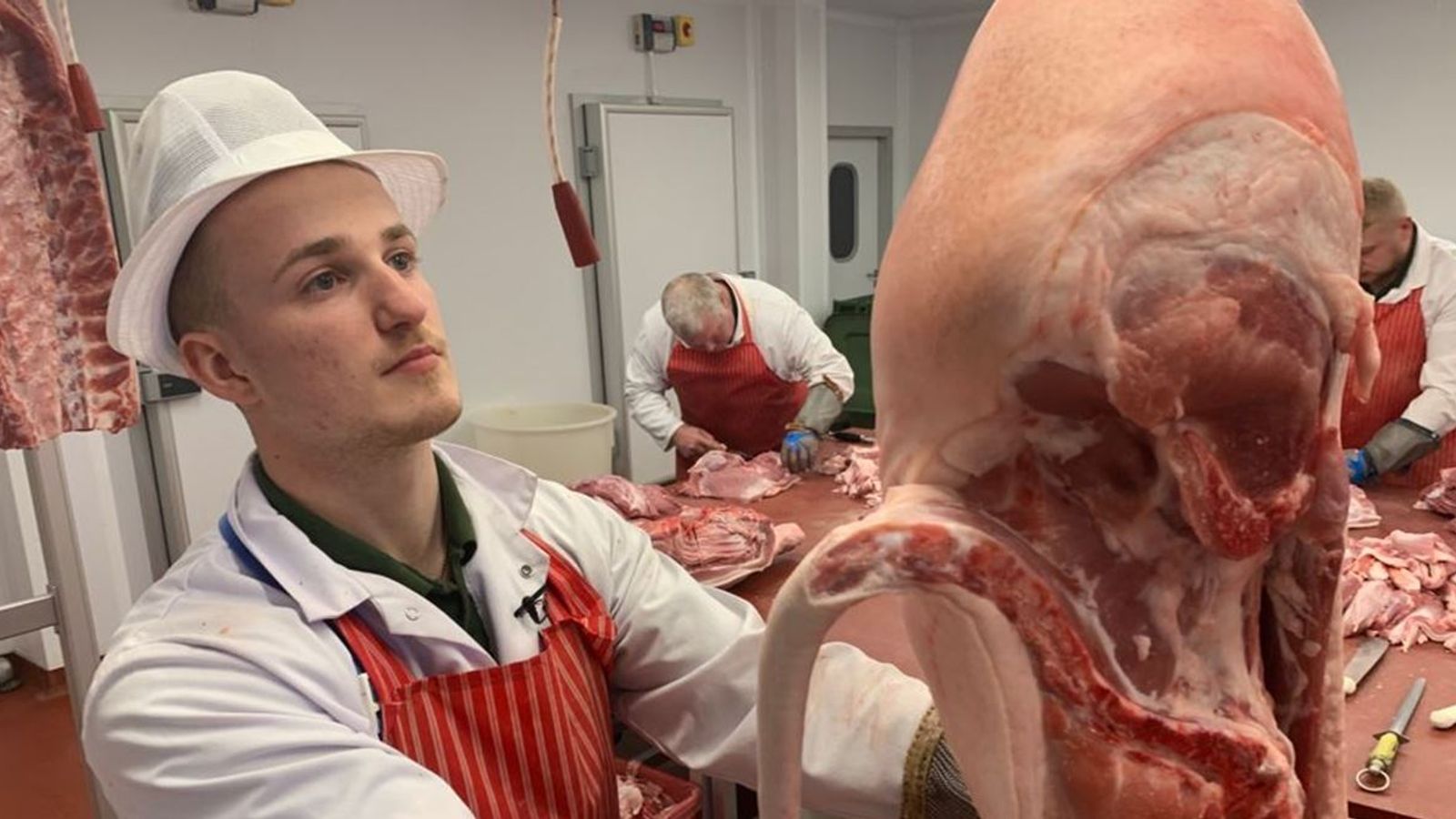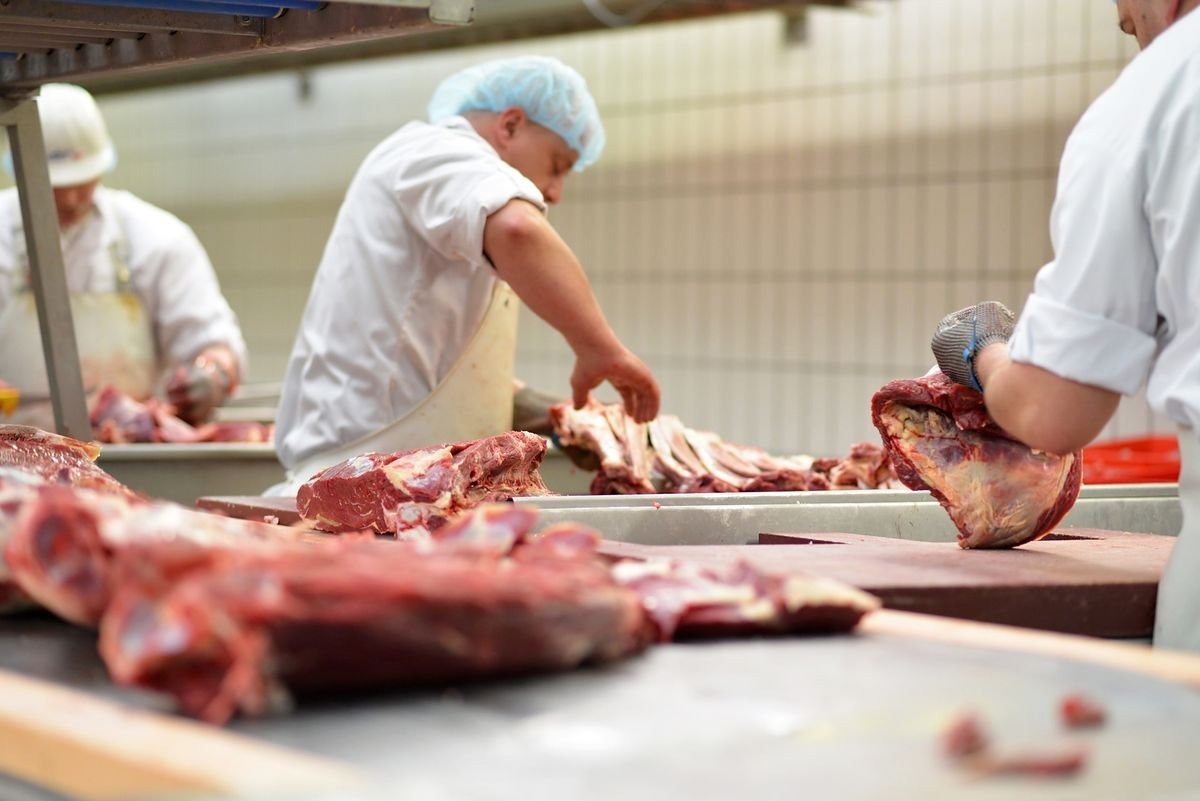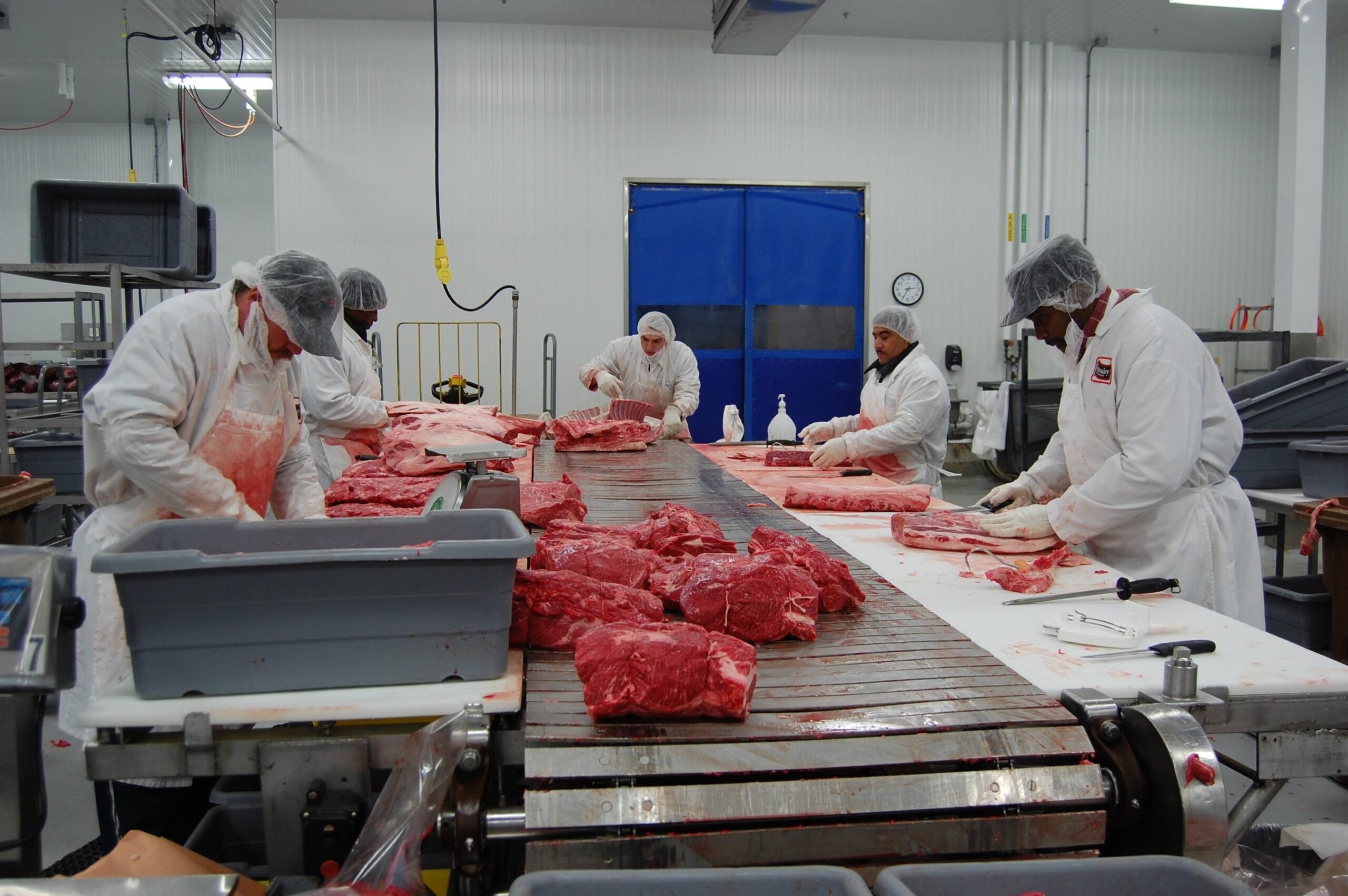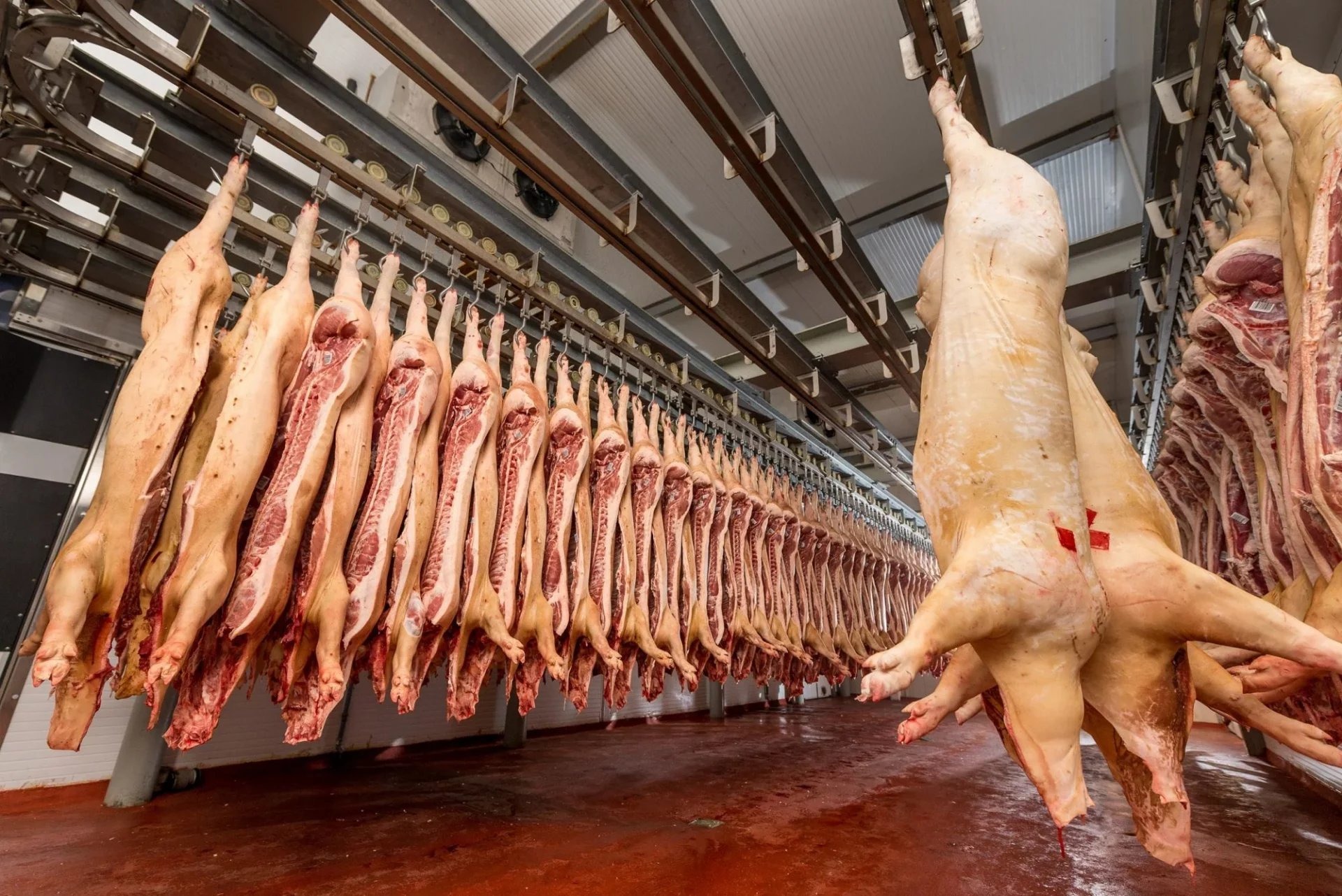

Poland’s Meat Industry Faces Manpower Crisis: Urgent Need for Skilled Butchers
- trienkhaiweb
- 22 February, 2024
- 0 Comments
Poland, renowned for its rich tradition of meat production and consumption, is grappling with a severe shortage of skilled butchers. This manpower shortfall within the meat industry is causing significant disruptions in the supply chain, threatening the sustainability of both small-scale butchers and large meat processing plants.
Factors Fueling the Demand for Manpower
Several factors are contributing to the heightened demand for skilled butchers in Poland:
- Evolving Consumer Preferences: An increasing preference for fresh, locally sourced, and artisanal meat products is driving the need for butchers who possess traditional skills and knowledge in meat cutting and processing.
- Aging Workforce: Poland’s existing butcher workforce is predominantly aging, with many skilled workers reaching retirement age. This demographic shift leaves a significant gap in the industry.
- Competitive Wages Abroad: Attractive wages and working conditions in neighboring European countries are luring away some of Poland’s skilled butcher workforce, further exacerbating the manpower shortage.

The Critical Role of Butchers: Beyond Meat-Cutting
A skilled butcher’s role extends far beyond simply cutting meat. They are essential for:
- Value Addition: Butchers transform raw meat cuts into value-added products like sausages, hams, and other specialty items, increasing profitability for businesses.
- Quality Control: Their expertise ensures adherence to food safety regulations and hygiene standards, safeguarding consumer health.
- Customer Interaction: Butchers often interact directly with customers, building trust and providing expert advice on the best cuts and preparation methods.
- Minimizing Waste: Butchers optimize the use of whole carcasses, minimizing waste and contributing to a more sustainable meat industry.
The Manpower Shortage: Consequences for the Polish Economy
The lack of skilled butchers has far-reaching consequences for Poland’s economy:
- Production Bottlenecks: Meat processing plants are forced to operate below capacity, leading to delays and lost revenue.
- Disrupted Supply Chains: The shortage impacts the entire meat supply chain, from farmers to retailers, causing price volatility and potential food shortages.
- Missed Export Opportunities: With insufficient manpower, Poland may struggle to capitalize on growing international demand for its high-quality meat products.

Attracting and Training New Manpower: Solutions in Sight
Addressing this critical manpower shortage requires a multi-faceted approach:
- Revamping Vocational Training: Enhancing vocational programs focused on butchery skills, providing hands-on training in modern techniques and food safety practices.
- Apprenticeships and Mentorships: Encouraging collaboration between experienced butchers and apprentices to facilitate knowledge transfer and on-the-job training.
- Competitive Compensation: Offering attractive salaries and benefits packages to retain existing skilled butchers and attract new workers to the profession.
- Image Building: Promoting the butcher profession as a respected and rewarding career path, with opportunities for creativity and entrepreneurship.
Labor Importing: A Viable Solution
To bridge the immediate manpower gap, Poland is exploring labor importing options. This involves attracting qualified butchers from other countries with relevant skills and experience. Streamlined immigration procedures and targeted recruitment campaigns can create a pathway for this skilled workforce to contribute to the Polish meat industry.

The Outlook: A Collaborative Approach for a Sustainable Future
The manpower shortage in Poland’s meat industry presents both a challenge and an opportunity. By investing in training, improving the image of the profession, and exploring labor importing avenues, Poland can revitalize its butcher workforce. These efforts will ensure the future of this vital industry, securing a stable supply of high-quality meat products for both domestic consumption and export markets.
Related articles
Employee Empowerment with Quinn Vietnam Manpower
In today’s dynamic business landscape, organizations are increasingly recognizing the importance of employee empowerment as a key driver of success. Quinn Vietnam Manpower, a leading provider of manpower solutions in Vietnam, understands that empowered employees are more engaged, productive, and committed to organizational goals. This article delves into the concept of employee empowerment, exploring its…
Quinn Vietnam Manpower’s 5 Steps to Successful Coaching in 2025
In today’s dynamic business environment, maximizing your manpower’s potential is crucial for success. Effective coaching programs are key to unlocking this potential, fostering employee growth, and driving organizational performance. Quinn Vietnam Manpower, a leading provider of manpower solutions, presents a comprehensive guide to successful coaching in 2025. Whether you’re leading coaching sessions yourself or partnering…
Functional Skills: A Guide for Quinn Vietnam Manpower’s Workforce in 2025
In today’s competitive job market, possessing strong functional skills is more critical than ever. For Quinn Vietnam Manpower, equipping our manpower resources with these essential skills is key to their success and the success of our partner businesses. This comprehensive guide explores the importance of functional skills, particularly in Math and English, and how Quinn…
Level Up Your Workforce: Gamification Strategies for Quinn Vietnam Manpower
In the competitive landscape of Vietnam’s manpower industry, attracting, engaging, and retaining top talent is more critical than ever. Quinn Vietnam Manpower recognizes the power of innovative solutions, and gamification is emerging as a game-changer in the realm of human resources. By integrating game mechanics and elements into various HR processes, Quinn Vietnam Manpower can…
3 Communication Skills Every Manager Needs to Thrive
In today’s rapidly evolving business landscape, effective communication skills are more critical than ever for managers. Whether you’re a seasoned leader or newly promoted, honing your communication abilities can significantly impact your team’s performance, morale, and overall success. This article delves into three essential communication skills every manager needs to master in 2025 and highlights…
Harnessing the Power of Insights with Quinn Vietnam Manpower
In the dynamic landscape of 2025, where businesses face unprecedented challenges and opportunities, the ability to gain profound insights is more critical than ever. For project management (PM) in Vietnam, this rings especially true. Quinn Vietnam Manpower, a leading provider of manpower solutions, recognizes the crucial role of insights in driving project effectiveness and organizational…







